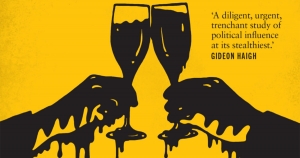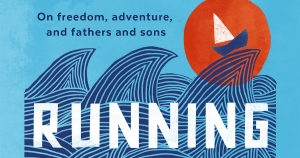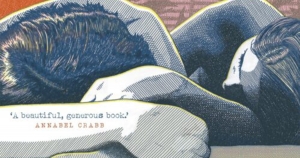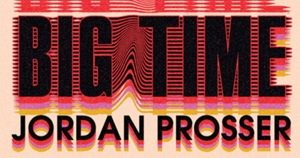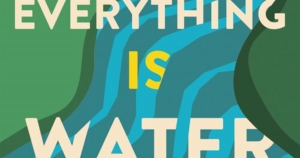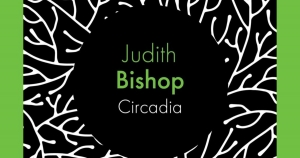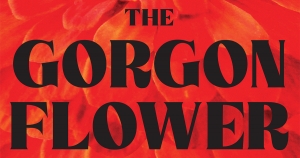University of Queensland Press
Stuart Kells reviews ‘Slick: Australia’s toxic relationship with big oil’ by Royce Kurmelovs
Journalist Royce Kurmelovs has written several business-focused books, including a well-received account of the end of Australia’s iconic Holden cars (The Death of Holden, 2016) and a partly personal analysis of the social costs of ubiquitous indebtedness (Just Money, 2020).
... (read more)Shannon Burns reviews ‘Running with Pirates: On freedom, adventure, and fathers and sons’ by Kári Gíslason
Kári Gíslason’s memoir of escape and adventure during his early adulthood begins in transit: he is freshly eighteen, ‘sleeping on the floor next to hot air vents at the back of a grand old ferry that connected Brindisi in the heel of Italy with Athens’. Kári is travelling with an ‘often-jolly, sometimes sarcastic’ Scotsman named Paul, and their relationship has begun to fray. Worse, they are low on money, which means their travels and ‘freedom’ may soon be over. Gíslason notes: ‘We were unemployable. I was sickly thin, and my hair past my shoulders and knotted. Paul always looked like he’d just woken up.’ Both are searching for ways to forget their troubles and orient themselves as they take the first steps into manhood, but the pressures that come with such a task have left them feeling oppressed and alienated.
... (read more)Tracy Ellis reviews ‘Love, Death & Other Scenes’ by Nova Weetman
In his book Bereavement: Studies of grief in adult life (1972), psychiatrist Colin Murray Parkes wrote: ‘The pain of grief is just as much a part of life as the joy of love; it is, perhaps, the price we pay for love, the cost of commitment.’ His words received a royal edit when Queen Elizabeth II, speaking at a memorial for the victims of 9/11, said, simply: ‘Grief is the price we pay for love.’ Being the queen, she could take such a liberty, denying Parkes his preamble and his ‘perhaps’. She whittled his words into a more essential and potent truth at a time when it was needed (if there’s ever a time when it’s not), ‘queensplaining’ his question as a comforting answer to the bewildered and bereaved.
... (read more)Given the global resurgence of interest in compounds such as psilocybin, LSD, and ayahuasca, it is a wonder more contemporary novelists have not turned to psychedelic experience for inspiration. It is, after all, hard to think of the golden age of psychedelics – roughly the mid-1960s to mid-1970s – without recalling the trippy, Zeitgeist-capturing literature it produced, including Hunter S. Thompson’s Fear and Loathing in Las Vegas (1971) and Tom Wolfe’s (highly fictionalised) Electric Kool-Aid Acid Test (1968).
... (read more)There are few places more restful than a riverbank on a fine day, few sights more enticing than a disappearing river bend, few places more intriguing to follow than the tumbled rocks of a creek line. Following the water, to its source or destination, seems hard-wired into our psyche.
... (read more)For those of us who would like to see a revival of the ‘techno-critical’ tradition in public debate (the tradition of Marshall McLuhan, Jacques Ellul, Neil Postman, and Langdon Winner, inter many alia), it is a cause of some irritation that the hegemonic view of technology remains the instrumental one. Here, technology is deemed to be neutral, in a way that precludes any serious analysis of its constitutive role in human affairs. Technologies, it is said, are merely tools to serve the needs of their users; they have no political content per se. I can use a hammer to drive in a nail or bludgeon my next-door neighbour to death. It is my actions that matter, not the hammer itself.
... (read more)In Poetry’s Knowing Ignorance, Joseph Acquisto borrows a definition of poetry from Phillipe Jaccottet: ‘that key that you must always keep on losing’. Attempting to know its subject, poetry reveals that there is always more to know. But the French poet’s metaphor, for Acquisto, does not mean ‘simple contingency’. It suggests ‘a complex play of certainty and doubt … that actively resists coming to a conclusion’. We might say that poetry expresses the friction in human experience between time and permanence.
... (read more)In Joseph Conrad’s Heart of Darkness (1899), the sailor Charles Marlow recalls captaining a river steamer in the Belgian Congo, a venture that becomes a search for the colonial agent Kurtz, said to be a brilliant if infamous ivory trader, who is ill and possibly mad. Marlow’s journey, of course, becomes a passage into psychological as well as (to the European mind) geographical darkness, and offers a damning portrait of Western imperialism.
... (read more)John Hawke reviews ‘The Other Side of Daylight: New and selected poems’ by David Brooks
The final poem of this superb collection, ‘The Darkness’, identifies a primal scene. The young protagonist is a nascent poet, watching over the embers of a desert fire in early morning, awaiting the breath of a Pentecostal wind to rekindle the flames. It is a parable which emblematises the difficult task of transformation that is central to poetry itself: the boy contends with ‘fragments / that will not alchemise to song / that yield not / to the metaphrast’.
... (read more)Claire G. Coleman reviews ‘Always Will Be’ by Mykaela Saunders
There has been talk in recent years about so-called Indigenous Futurism. Referencing Afro-Futurism, futurist fiction that imagines a new postcolonial Africa, the Indigenous version imagines a postcolonial world for Indigenous people, a future where the world is the way it should always have been. One quirk, however, is that Indigenous Futurism leans on Indigenous notions of time, an eternal now in which past and future are mere directions. Writers of Indigenous Futurism know that it’s not only possible to imagine the future and the past at the same time, but that it is part of cultural practice.
... (read more)
